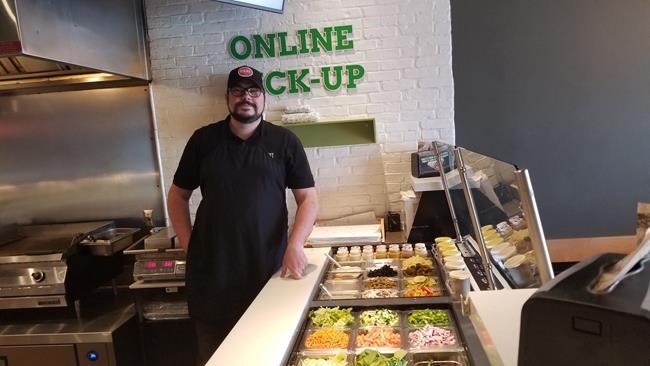When Michael Petrovici posts a job opening for one of his northern New Brunswick restaurants, he's lucky if he gets one application.
"It's very, very challenging to recruit people locally," said the entrepreneur who owns a fast-food restaurant, a coffee shop and a full-service eatery in Bathurst.
The small city on the Chaleur Bay is quickly becoming the epicentre of Canada's restaurant industry labour shortage after the province paused a popular immigration stream used by businesses to attract workers to the area.
"We were already struggling before. Now it's just impossible for us," Petrovici said. "I'm not sure how we'll get through the summer."
At issue is a decision by the New Brunswick government to suspend the province's express entry stream, part of the provincial nominee program.
Arlene Dunn, the province's minister responsible for immigration, said the application process was temporarily paused to ensure the needs of all sectors are met after a significant increase in demand.
"If it was allowed to continue, under the current circumstances, the large demand on our existing programming would jeopardize access to immigration for certain sectors ... such as internationally educated nurses or international students who are currently in New Brunswick," she said in a letter to Petrovici in response to his concerns.
The Canadian Press reached out to New Brunswick government departments that oversee immigration, economic development and business for comment but did not receive a response.
Restaurants across the country are confronting a worker shortfall.
The sector was slammed by two years of pandemic shutdowns, repeated layoffs and strict capacity limits. About 13,000 eateries across the country closed permanently and many workers left the industry altogether.
"The food service industry has been the hardest hit in terms of job losses as a result of COVID," Restaurants Canada’s Atlantic Canada vice-president Richard Alexander said.
"The impact is even more significant in Atlantic Canada because of our unique labour challenges."
Bathurst, for example, has a median age of 53 — more than a decade older than Canada's median age of 40.4, according to Statistics Canada.
"The aging demographic makes it tough to find workers," Petrovici said. "Rural areas are at an ever bigger disadvantage."
Still, New Brunswick recorded a mini population boom during the pandemic.
The province added 15,000 newcomers in just 12 months — the fastest rate of population growth since 1976 — reaching 800,000 people, the province said in March.
Yet Petrovici, who owns a Pita Pita franchise, the coffee shop Kaffeine and the full-service restaurant Au Bootlegger, said he still can't find enough workers to staff his eateries.
"We're in crisis mode and it’s going to get worse," he said. "The labour shortage is a really dire situation."
Given the recent changes to the province's immigration program, he said four of his employees will be leaving New Brunswick.
"I am brought down to my knees," he said in a letter to Dunn. "We already have a mountain ahead of us in small rural communities just to attract newcomers."
The changes to the immigration program have paused applications for food service supervisors, food counter attendants and food and beverage services indefinitely, he said.
"It feels like we're being treated like a second-class business," said Petrovici.
In her letter to Petrovici, Dunn suggested he consider the federal temporary foreign worker program.
But Petrovici said he doesn't have the resources required to pursue other immigration streams, which are more complicated to navigate and require labour market assessments.
"Maybe if you're a big business owner with 20 franchise locations and can afford to pay consultants it could be worth it," he said. "But we're just a mom and pop shop."
Petrovici said he was told one of the issues is a delay with the federal allocation of candidates — the number of foreign workers the province is able to welcome each year.
Rémi Larivière, a spokesperson for the federal Immigration Department, said allocations for 2022 were delayed due to the 2021 federal election, the conflict in Ukraine and ongoing challenges related to the pandemic.
Still, he said all provinces and territories participating in these immigration programs were told they could expect, at a minimum, the same number of allocations that they received in 2021.
"They've sort of passed the buck to the federal immigration (department)," Petrovici said. "I don't know what the problem really is but we need a solution."
He added: "All we need and want is to be able to keep our doors open."
This report by The Canadian Press was first published June 9, 2022.
Brett Bundale, The Canadian Press



